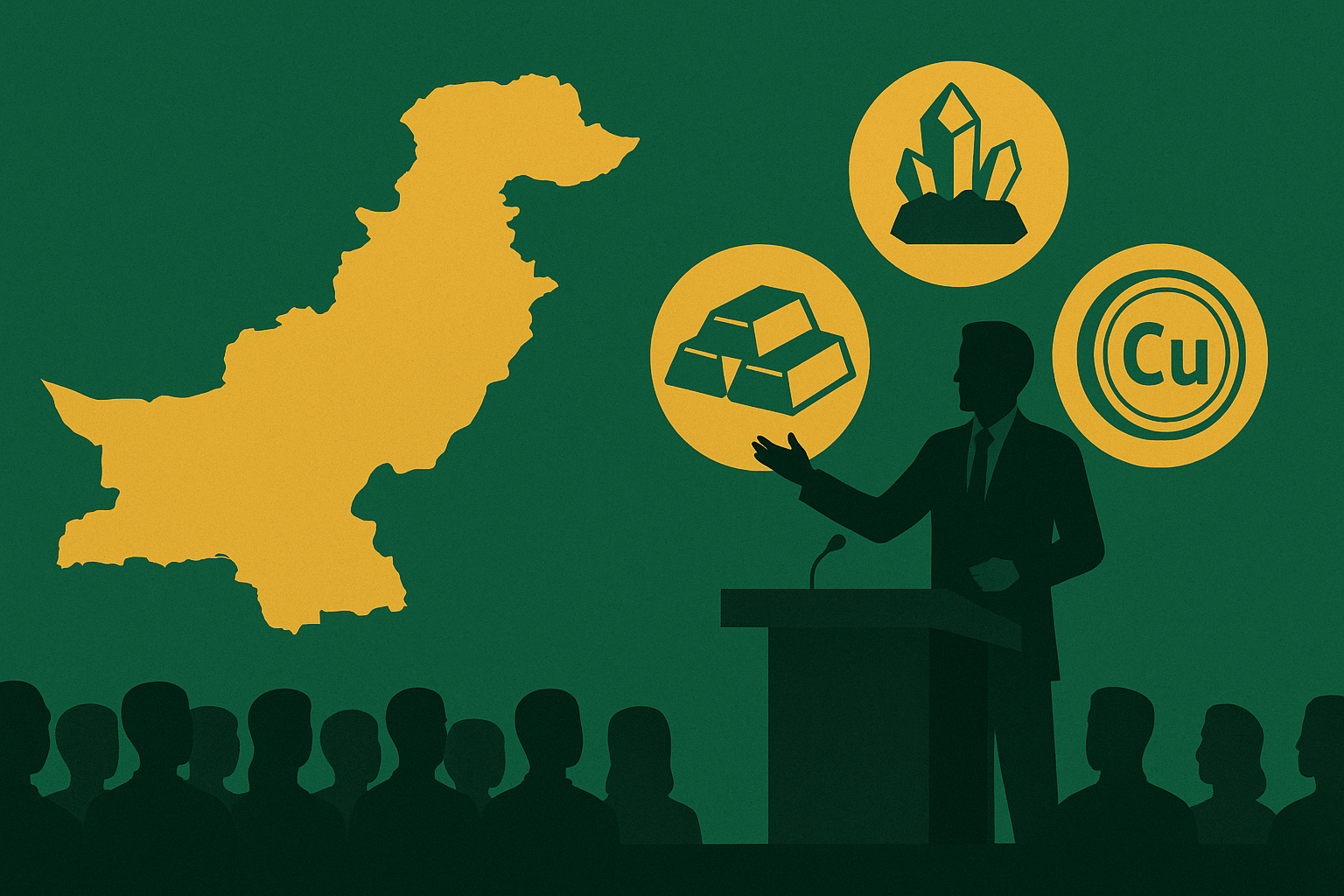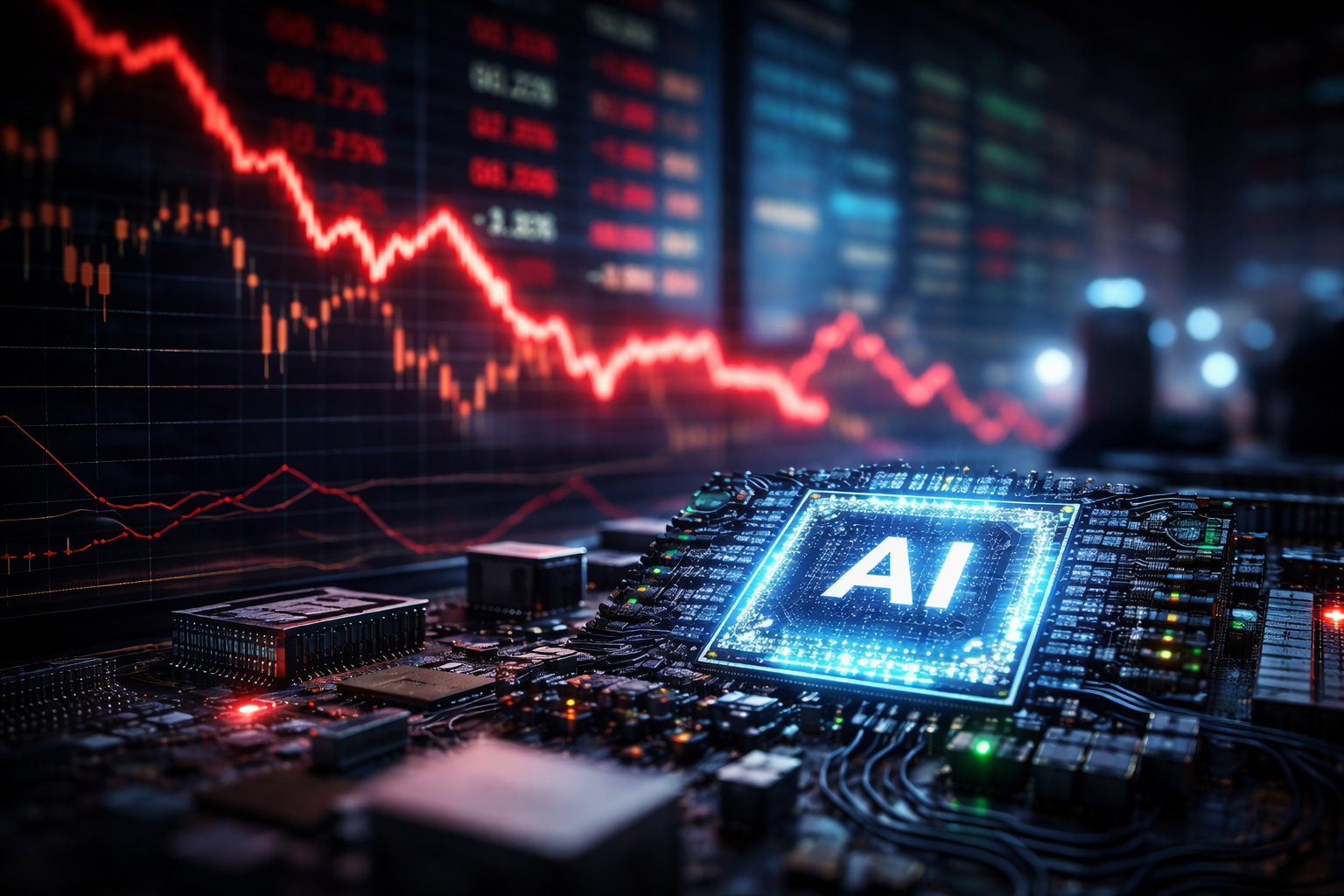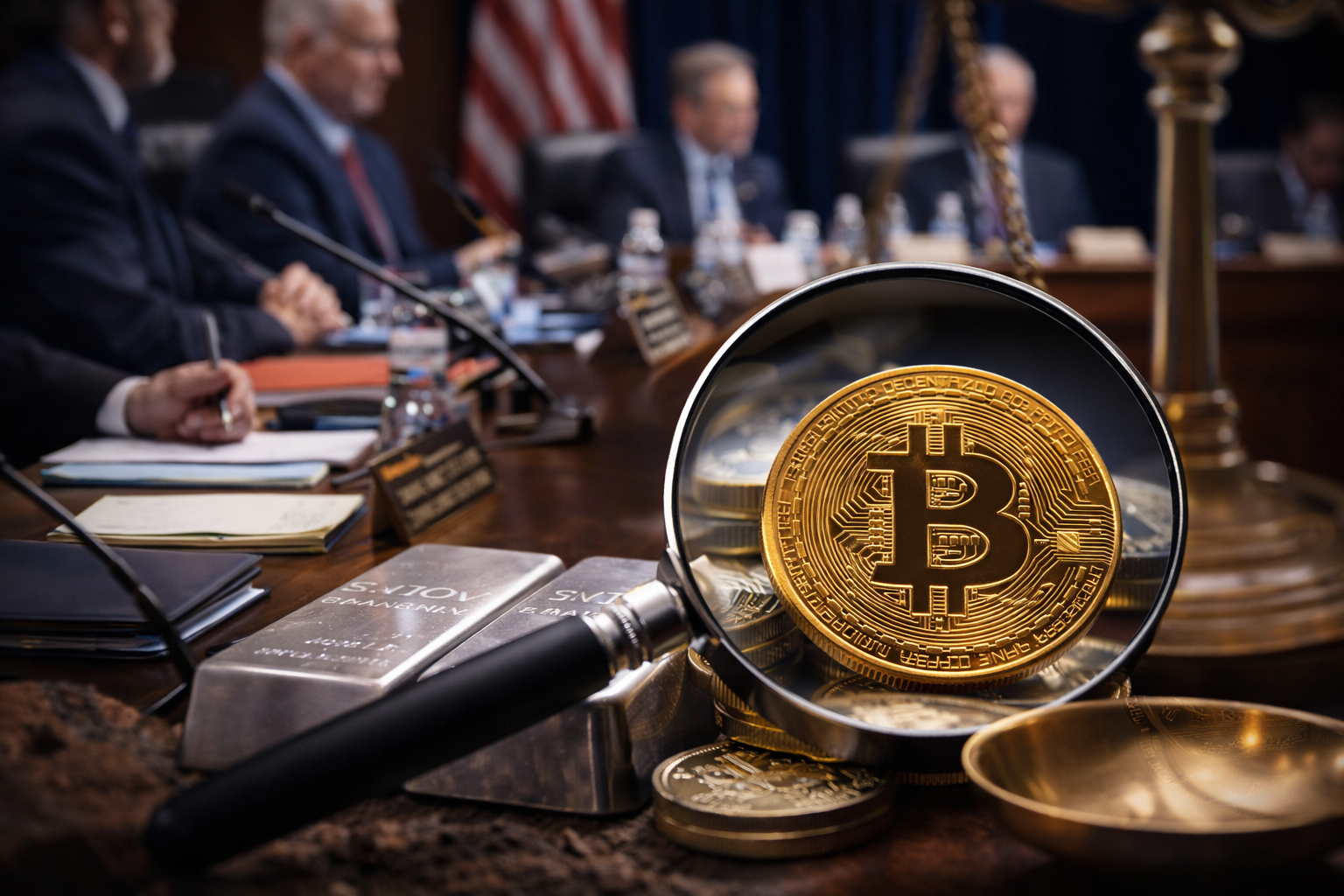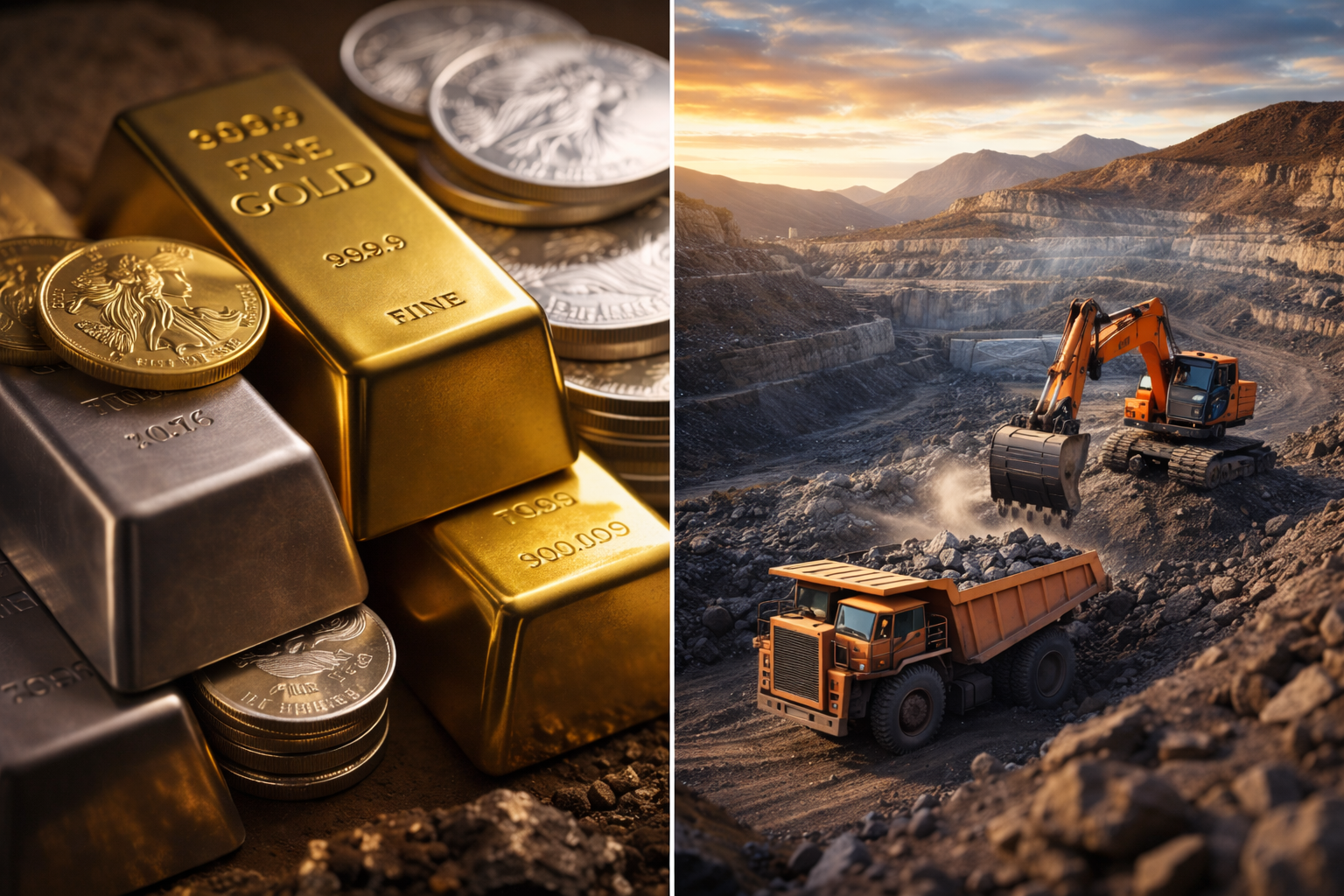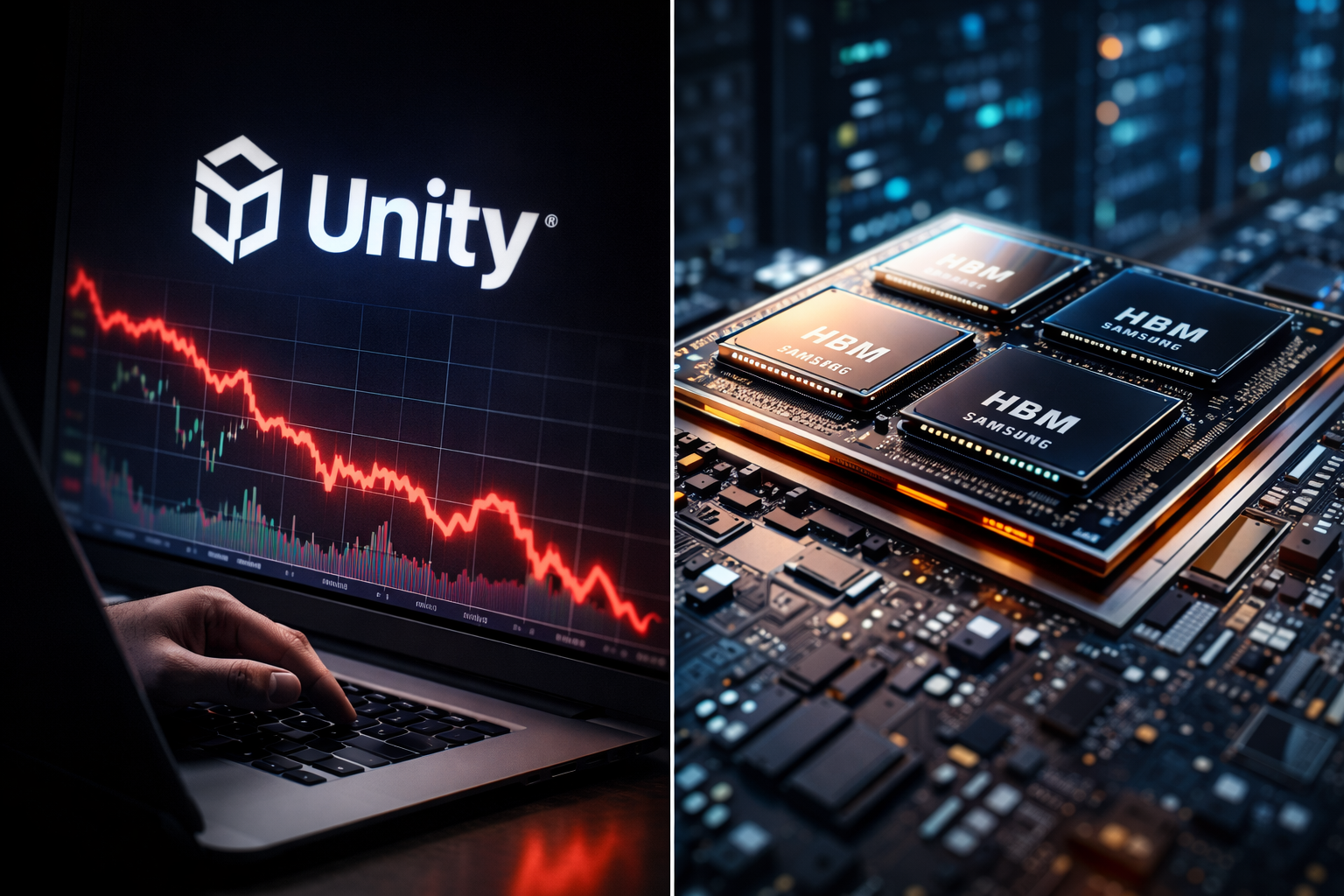Amid a global race for critical minerals fueling the clean energy transition, Pakistan is stepping onto the world stage with a bold proposition: access to one of the planet’s most underexplored yet resource-rich mining frontiers. At the Pakistan Minerals Investment Forum 2025, held on April 8–9 in Islamabad, government officials, global investors, and mining giants gathered to unlock a sector estimated to be worth a staggering $6 trillion. As countries scramble to secure supply chains for copper, gold, lithium, and rare earths, Pakistan is pitching itself as the next major hub in the minerals economy.
Why This Matters for Investors
Pakistan’s mineral wealth — long constrained by outdated regulations, security concerns, and infrastructure bottlenecks — is now being repositioned as a cornerstone of its economic revival strategy. The government’s unveiling of the National Minerals Harmonization Framework 2025 (NMHF) signals a new era of reform aimed at attracting foreign capital, streamlining regulatory approvals, and ensuring investor-friendly governance.
According to Arab News and Business Recorder, the initiative seeks to consolidate scattered provincial mining regulations under a unified national framework, making it easier for foreign firms to navigate and invest in the country’s natural resources. With over $6 trillion in estimated untapped mineral value, this is a pivotal moment for first-mover investors.
Sector Potential: Copper, Gold, Rare Earths & Beyond
Pakistan’s mineral landscape is rich and varied:
- Copper: The Reko Diq mine, operated by Barrick Gold, is among the largest undeveloped copper-gold projects in the world. It’s expected to produce 200,000 tons of copper annually, making Pakistan a significant player in the global copper supply chain.
- Gold: Alongside copper, Pakistan holds sizeable gold reserves. The government estimates over 3 million ounces in proven reserves in just one of its major deposits.
- Rare Earth Elements: Though underexplored, regions like Balochistan and Gilgit-Baltistan are believed to host significant quantities of rare earth minerals — crucial components in EVs, wind turbines, and electronics.
- Strategic Geography: Proximity to China, Central Asia, and the Middle East positions Pakistan as a key logistics node for mineral exports.
Credible Commitments and Strategic Partnerships
Pakistan’s push for investment isn’t happening in isolation. Key international stakeholders are already engaged:
- Barrick Gold has reaffirmed a $7 billion investment commitment for the Reko Diq project.
- The World Bank and International Finance Corporation (IFC) have shown interest in supporting mining infrastructure and regulatory frameworks.
- Pakistan’s strategic alignment with China’s Belt and Road Initiative (BRI) also opens doors for deeper collaboration with Chinese mining and infrastructure firms.
As the demand for battery metals and energy-transition resources grows, Pakistan’s value proposition becomes increasingly attractive — especially for investors looking beyond saturated Western markets.
Challenges to Watch
Despite the promising outlook, investors must assess key risks:
- Political Stability: Government consistency in regulatory enforcement and protection of foreign investment will be vital.
- Security Concerns: Certain mining-rich areas, particularly in Balochistan, still pose operational challenges.
- Infrastructure Gaps: While reforms are underway, logistics, electricity access, and water supply for mining operations require significant upgrades.
These risks, however, are being addressed through multilateral partnerships, improved governance, and targeted investment in infrastructure corridors.
Key Investment Insight
Early participation in Pakistan’s mining sector could offer outsized returns for long-term investors. With commodity prices for copper and rare earths projected to climb amid accelerating energy transitions, strategic exposure to emerging markets like Pakistan can offer portfolio diversification and access to high-growth assets.
Look to mining-focused ETFs, mid-cap exploration firms with operations in South Asia, or directly monitor developments around flagship projects like Reko Diq for early entry points.
Stay Ahead with MoneyNews.Today
As the global commodities map is redrawn, investors need fresh insights to navigate new frontiers. Follow MoneyNews.Today for daily updates, exclusive analysis, and actionable intelligence on the most important stories shaping the future of investment.
